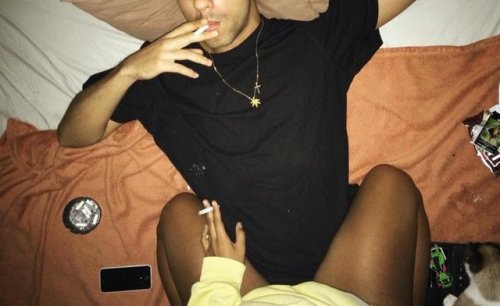“In The 1970s, I Saw Myself First And Foremost As A (radical) Feminist. I Did Not Have A Primary Awareness
“In the 1970s, I saw myself first and foremost as a (radical) feminist. I did not have a primary awareness of myself then as a member of an oppressed sexual minority, which I suppose I have now. I believed that it was important to fight for the rights of all women, of whatever sexual preference, and I believe that the WLM would eventually realise this. I thought that feminists would work together to change the world. Even then, however, the writing was on the wall about the unacceptability of bisexuality. Even respected feminists believed bisexuality to be an exercise in moral and political futility. We were perceived as women who were afflicted  with a form of ‘false consciousness’. This meant that our experience was not ‘real’, not experience with which other women, other feminists, could or should identify with, or develop theory or practice from (the theory and practice of consciousness-raising should have suggested otherwise). We were the exceptions to the feminist rule. One day, it was opined, we would either ‘see the light’ and come out (self-identity) as lesbians - or we’d go back to relationships with men and stop oppressing lesbians by trying to have relationships with them in our unreconstructed state. (Opinion leaned to the view that the latter option was by far the most likely outcome, and maybe because of this, bisexual women were shunned as partners by most lesbians, thus making the theory a self-fulfilling prophecy.) Bisexual women, it was felt, could safely be disregarded.”
- Zaidie Parr, Bisexual Horizons: Politics, Histories, Lives

More Posts from Bi-supremacy and Others

i suffer from 'men are hotter banged up' disease. unfortunately there is no cure.
“Many of us feel threatened when the categories we believe in are challenged, especially if they shape our sense of who we are. Not only do bisexuals contradict a primary set of cultural categories - our culture calls us “decadent” because we refuse to play by the rules, thereby undermining the social “order” - but we challenge many people’s personal sense of what constitutes sexual identity. Whether we threaten by introducing a third category or by undermining the notion of categories altogether, we cause enough discomfort that many people deny our existence.”
- Lisa Orlando, Bi Any Other Name: Bisexual People Speak Out

“I don’t like gay and lesbian people’s ignorance about bisexuals. It’s rare to find a politically savvy bisexual person who isn’t involved in the gay and lesbian community, but many gays and lesbians have no knowledge of bisexual people. We’re still laughed at, trivialized, seen as purveyors of disease, seen as riding on the coattails of the gay rights movement, as if we weren’t there all along.
To me, these attitudes toward us come from ignorance and self-hatred. If somebody feels really good about who they are, they don’t feel threatened by what other people are…
Heading and saying “gay, lesbian, and bisexual” is music to my ears. Because the more unity we achieve, the more we put aside petty differences, the more strength we have.”
- Dr Maggi Rubenstein, Bi Any Other Name: Bisexual People Speak Out
I just want to slap a pretty boy in the face and have him thank me. Dick hard, eyes soft and wanting as he bites his lip. Face reddened from my handprint.
You like that, don’t you, you little slut?




@jamilla.strand


“When you do take the trouble to point out that you are, in fact, bisexual - that no matter whether you are with a man or a woman you will always have the potential to go either way - people look at you with scepticism, confusion, disbelief, or perhaps even envy. Their faces say this: you’re lying to yourself, it’s just a phase, you don’t know what you want, you’re letting the side down, you’re greedy, you don’t exist. But you do exist. Here you are.”
- Chitra Ramaswamy, The Bi-ble: an anthology of personal essays and narratives about bisexuality
-
 cadetie reblogged this · 1 year ago
cadetie reblogged this · 1 year ago -
 bi-supremacy reblogged this · 1 year ago
bi-supremacy reblogged this · 1 year ago -
 bi-supremacy liked this · 1 year ago
bi-supremacy liked this · 1 year ago -
 febfeminashido liked this · 1 year ago
febfeminashido liked this · 1 year ago -
 frigid666 reblogged this · 1 year ago
frigid666 reblogged this · 1 year ago -
 spiderfreedom liked this · 1 year ago
spiderfreedom liked this · 1 year ago -
 satanic-vaginas reblogged this · 1 year ago
satanic-vaginas reblogged this · 1 year ago -
 step-on-me-handong liked this · 1 year ago
step-on-me-handong liked this · 1 year ago -
 readingbibooks reblogged this · 1 year ago
readingbibooks reblogged this · 1 year ago